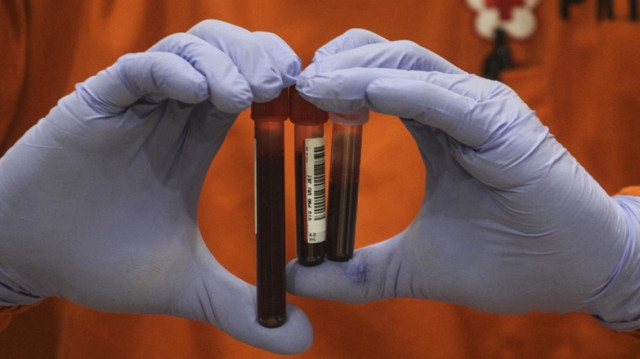Premarital blood tests are a topic often met with resistance or lack of awareness in countries like Pakistan, where many families may view them as unnecessary. However, medical professionals stress the importance of these tests to prevent the transmission of genetic and infectious diseases, protecting both partners and their future children from avoidable health issues.
Why Are Blood Tests Before Marriage Important?
Blood tests before marriage serve to detect diseases that might not show symptoms immediately but can be passed on to partners or future offspring. Early diagnosis can enable timely interventions, reducing the risk of serious, long-term health complications.
Muhammad Nawaz’s Story:
Muhammad Nawaz, a resident of Islamabad, shared a tragic personal experience involving thalassemia, a genetic blood disorder. He married his first cousin, a common practice in his family, and no one suggested premarital genetic testing. Sadly, their daughter was diagnosed with thalassemia major, requiring monthly blood transfusions. Nawaz expressed regret, stating that he now strongly advocates for premarital testing to help other families avoid the same heartbreak.
Key Blood Tests Before Marriage:
-
Blood Group Test: Determining blood types is essential, especially to prevent Rh incompatibility, which can cause complications during pregnancy if the mother is Rh-negative, and the child is Rh-positive.
-
HIV Test: HIV can be transmitted to partners and children. Early detection enables effective treatment to prevent complications like infertility, miscarriage, or severe health risks for the family.
-
Hepatitis B & C Test: These viral infections pose significant risks to the liver and can be passed through sexual contact. Early testing helps ensure proper treatment and prevents transmission.
-
Genetic and Hereditary Disease Testing: Genetic disorders like thalassemia are prevalent in regions like Pakistan. If both parents are carriers, their child could inherit the severe form of the disease. Premarital genetic testing helps couples make informed decisions, potentially preventing lifelong health struggles for their children.
-
Fertility Test: Testing for fertility issues is important in cultures where having children is seen as crucial for a successful marriage. Infertility can affect both men and women, and early diagnosis can help reduce social stigma and provide solutions for affected couples.
The Need for Awareness:
In Pakistan, the discussion around premarital blood testing is still limited, despite the high prevalence of thalassemia major, with approximately 100,000 affected children annually. Medical experts suggest adopting a model like Iran, where mandatory pre-marriage blood testing has significantly reduced blood-borne diseases.
A pediatrician emphasized that awareness campaigns and government initiatives to promote premarital screening have largely been unsuccessful in Pakistan. There is a growing need to address this issue, as it could help prevent the transmission of genetic and infectious diseases and lead to healthier generations.
Premarital blood tests should be seen not as a hurdle to marriage, but as a proactive measure to ensure better health for couples and their children. Raising awareness about this topic could help Pakistan make a significant leap toward improving public health and breaking the cultural taboos around medical testing.


Leave feedback about this